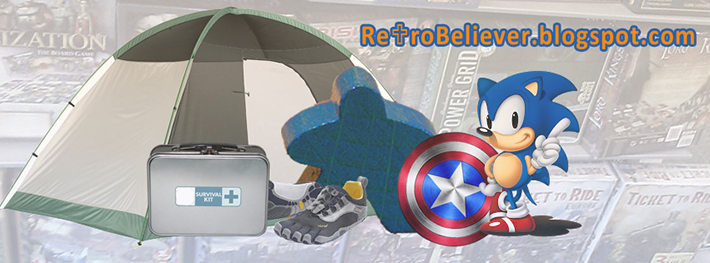Several weeks ago, I played a board game called The Lost Ruins of Arnak, published by Czech Games. A beautifully colorful mishmash of deck-building and worker placement mechanism, the game involves exploring a stereotypically tropical locale for tablets, gold, arrowheads, and rubies, all the while researching a lost civilization and encountering powerful guardians. Thematically, the game leans heavily on the Indiana Jones adventure trope; this is not a knock against the game, though... Despite the decidedly apparent Euro-game elements, the theme shone through the mechanisms and, along with the superior art, evoked the thrills of the adventures of the man with the whip and fedora.
As my time with the game concluded, I found myself pondering familiar thoughts, specifically the itch-till-it-is-scratched desire to purchase this gem of a game. Yet, two counterthoughts caused me to pause: one was the acknowledgment that I already own a game like this called Dune Imperium; the other thought was the gnawing feeling that I have many great games I rarely have time to play. Both thoughts bolstered each other like a world-class beach volleyball duo; one thought set the ball, and the other spiked it. In the past, my thoughts would dig out the spike, but this time I was thankful they did not.
If you do not follow the metaphor, I'll state it plainly: I have so many great games that the urge NOT to buy more games has become stronger. When I first became interested in hobby board games, I followed the trajectory of a new enthusiast in the spring of his hobby: every time I played a new game, I made it my business to purchase it (as well as some of its expansions). I started with the classic "gateway" games; in fact, my first game was Ticket to Ride, which is as quintessential a gateway game as it gets. Next, it was Carcassonne, Settlers of Canaan (not Catan), Pandemic, and Alhambra. Then, I used a list of the past Spiel des Jahres winners (one of the prestigious board game design awards) as my roadmap to guide my purchases. Fast-forward to now and I own some of the most highly-ranked games on Boardgamegeek.com. I do not say that to brag as much as to demonstrate that I have done much to build a reasonably sizable collection of 60-70 good-to-excellent board and card games.
I have been collecting and playing these connoisseur board games for over 10 years. I have sold some and kept many, but now I view my collection as replete with fine options that I have little impetus to expand. This is not to say that I do not enjoy them; quite the opposite, I enjoy all of them. Yet, when a new game is released, I remind myself that I must own a very similar game to that new one. For instance, when I encounter a game like The Lost Ruins of Arnak, I force myself to compare it to other games in my inventory. Considering my somewhat eclectic collection, I often find a game that approximates the new one. In this case, I own Dune Imperium, which, like The Lost Ruins of Arnak, is a deckbuilder with worker placement elements and a game board. Sure, the themes are markedly different (Indiana Jones exploration versus Landsraad conflict), but the mechanics feel close enough not to justify a purchase (for me, anyway).
...Or doesn't it? The internal conflict of many board gamers is whether to stratch that gem purchase itch or not. It's like any other hobby, I suppose: if you are interested in kayaking, for instance, you buy a starter kayak, then a kayak with more features, and then better paddles, a customized seat, a flashy life-vest, and other accoutrements. Soon enough, you realize that you no longer ride that old kayak or use those old paddles (oars?); they just sit on the shelf. For board gamers, though, the problem is compounded because (and this may be a novel idea for some) the old games were not really supplanted by the new games.
Think about it... Let's say you still own those classic gateway games. Did any game really replace Ticket to Ride? If you have a game that truly replaced the theme and mechanics of Ticket to Ride, why not sell or offload Ticket to Ride? Why keep both? If both games are different yet similar, what is compelling you to keep them? Do you have time to play both? There are so many questions that one should ask oneself when facing a purchasing dilemma. Sadly, there is no one right answer when it comes to scratching that gem purchase itch. For me, though, I have a limited amount of time and a lot of great games that cover my favorite themes and mechanics. Why buy a new game that does what one of my current games does?
Over the course of the next several (or more) articles, I aim to revisit the "old" games of my collection. I will ask the questions I posed above, hoping to equip you with the tools you need to make prudent buying decisions. Sure, we should support the board gaming industry. Yes, it is okay to buy a (or numerous) board games, especially if it's within your personal budget (don't use your rent or utility money - that's my recommendation). However, whenever I stare at Yokohama or Lorenzo il Magnifico on my shelf, I lament at how I have not had the chance to dive into the strategic intricacies of the games I have. Why buy more when I have a lot of great ones?
Tuesday, October 5, 2021
Should You Scratch the Board Game Gem Purchase Itch?
Subscribe to:
Posts (Atom)

